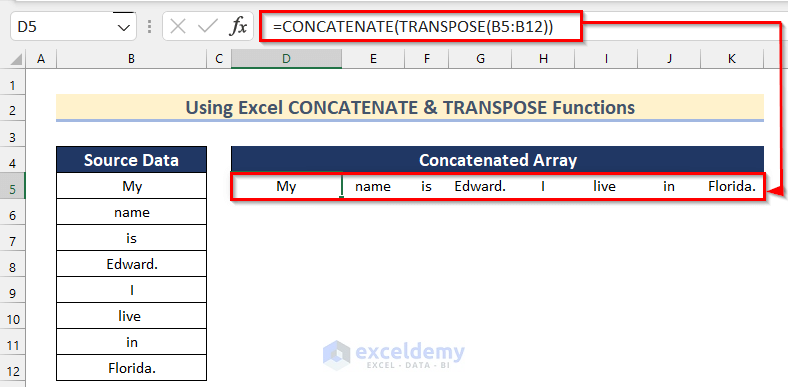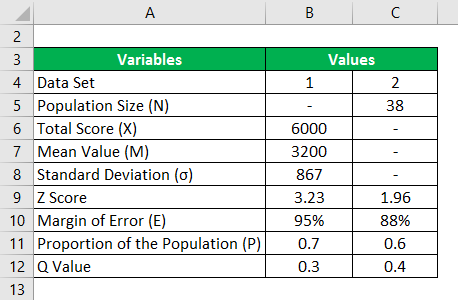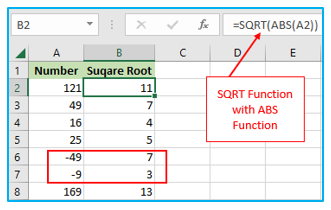3 Excel Hacks to Undo Concatenate Fast

Ever found yourself wishing to reverse that cell merge or the concatenation of a series of cells in Microsoft Excel? Here, we'll explore three swift and practical Excel hacks to undo concatenate quickly and efficiently.
Understanding Excel’s CONCATENATE Function
Before diving into the hacks, it’s worth understanding what concatenation in Excel entails. CONCATENATE, now known as CONCAT in newer versions, combines multiple cells into one cell:
=CONCAT(A1,B1,C1)would merge the contents of cells A1, B1, and C1 into a single cell.
Hack 1: Using the TEXT TO COLUMNS Feature
One of the simplest ways to undo concatenate in Excel is by using the ‘Text to Columns’ wizard:
- Select the column containing your concatenated data.
- Go to the Data tab in the Ribbon.
- Click on ‘Text to Columns’.
- Choose ‘Delimited’ if your cells are separated by characters like commas or spaces; select ‘Fixed Width’ if they are not.
- Click ‘Next’, adjust the delimiters as needed, and then ‘Finish’.
💡 Note: Remember that this method will overwrite any data adjacent to the column you are splitting. Ensure you have a backup or sufficient empty columns.

Hack 2: Using Excel Formulas
Another approach is to use Excel formulas to extract data from concatenated cells:
- To split a cell where values are separated by spaces, you can use the
LEFTandRIGHTfunctions withFIND. - Here’s an example to extract the first name from a full name (assuming there’s one space between names):
=LEFT(A1, FIND(” “, A1) - 1)retrieves the first name.=MID(A1, FIND(” “, A1) + 1, LEN(A1))retrieves the last name.
🔥 Note: This method requires prior knowledge of the pattern within the concatenated string. Use the appropriate formula based on how your data is formatted.

Hack 3: Utilizing Power Query
Power Query in Excel is a powerful tool for data manipulation:
- Select your data range.
- From the Data tab, choose ‘From Table/Range’ to load the data into Power Query.
- Go to ‘Transform’ > ‘Text Column’ > ‘Split Column’ > ‘By Delimiter’. Choose your delimiter and how you want to split the column.
- Adjust the settings as necessary, then load the data back into Excel.
Power Query is especially useful for complex data transformations and can undo concatenations efficiently for large datasets.

| Benefit | Description |
|---|---|
| Efficiency | Automates data transformations, saving time. |
| Versatility | Can handle complex string operations and nested delimiters. |
| Repeatability | Queries can be saved and reused for similar tasks. |
✅ Note: Power Query is available in Excel 2016 and later versions. For earlier versions, you’ll need to download and install the Power Query Add-In.

To wrap things up, undoing concatenation in Excel can be as straightforward or sophisticated as your data demands. Whether you're dealing with simple cell merges or extensive data transformations, these three hacks provide you with the tools to handle your Excel sheets efficiently. The 'Text to Columns' wizard is a go-to for quick splits, Excel formulas offer a customizable solution for specific patterns, and Power Query excels in bulk data manipulation. Each method has its use case, enhancing your ability to manage and present data effectively. Remember these hacks the next time you face the need to reverse concatenation in your Excel workbooks.
Can I split cells that were concatenated without a clear delimiter?
+Yes, you can use the ‘Text to Columns’ feature with ‘Fixed Width’ if there’s no clear delimiter, allowing you to manually set the split points.
How can I undo concatenate for multiple cells at once?
+Power Query is particularly effective for this task. Once you’ve set up your query, you can apply it to any number of rows or columns.
Are there limitations to using these hacks?
+Yes, for instance, ‘Text to Columns’ overwrites data in adjacent columns, and formulas might not work for all data patterns. Power Query requires newer versions of Excel.



